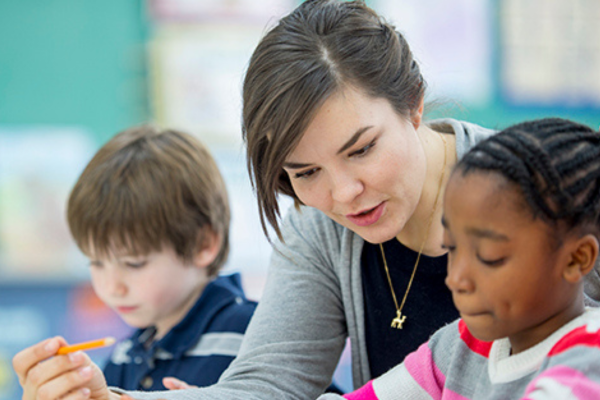Developing speech, language and communication skills

Children’s communication skills continue to develop rapidly during their time at primary school, with improvements to attention, listening and understanding, the range of vocabulary they use, their ability to use grammatically correct sentences and their pronunciation of speech sounds.
Why is communication important for children?
Good communication helps children make friends and achieve their potential both at school and beyond.
Communication skills develop in clear stages:
- First children need to develop their remembering, listening and hearing skills
- Then they need to build up their social communication, talking and understanding skills
- Then finally their speech sound (pronunciation) skills develop
Once these are in place then reading and writing will follow.
Stage one
Hearing
Children need to be able to hear all the different speech sounds in order to pronounce them. Did you know that some speech sounds such as ‘s’ are quieter than other sounds, for example ‘g’?
If you are concerned about your child’s hearing, speak to your child’s GP or your school nurse who will ensure they are referred for further tests if necessary.
For more information about hearing tests and spotting the signs of hearing problems, please visit the NHS website.
Listening
Listening means being able to focus your attention when someone is talking.
This is difficult for younger children as they have to learn to ignore the background noise and concentrate on what someone is saying.
Remembering
Being able to understand instructions (particularly those with more than one step) first relies upon a child being able to remember what they have just been told.
As children get older, they need to listen to and remember increasingly complex pieces of information (listening to the teacher reading a longer story, or talking about a new topic they are covering).
Stage two
Social Communication
As well as knowing how to use words and sentences, there are many unspoken ’rules’ that we follow when it comes to interacting with others.
1. Using and understanding body language, gestures and facial expressions. This also includes knowing:
-
- How close to stand to someone when talking to them
- How to take turns and listen
- To look at people when having a conversation
2. Changing our words and the information we include in the conversation depending on who we are talking to and what we know about them (this needs us to consider other people’s point of view and what they may already know)
3. Being able to use language in different situations, with different people, for many different reasons. For example, being able to ask the teacher a question to find out more information or telling your friends about what you want to do for your birthday.
Stage three
Talking
- Joining words together in sentences.
- Using these sentences to have a conversation, retell stories or answer a question
- This also involves:
- Putting words in the right order
- Using the ‘rules of grammar’ e.g. he ran to the park’ not ‘he runned to the park’
- Knowing and choosing the right words to explain what you mean, and finding the word when you need it
- RALLI – Where’s that word
Understanding
- Understanding the meaning of sentences including
- Language about things in the past or future
- Longer complex instructions
- Learning and understanding the meanings of words e.g. what does the word ‘enormous’ mean?
- Understanding that words and sentences can mean more than one thing e.g. ‘pull your socks up’
Speaking Clearly
- Being able to make sounds, for example ‘K’ and ‘S’ clearly and put them into words so people can understand what you say
- Speaking without hesitating too much or without repeating words or sounds
- Having a healthy voice
- Some children can experience difficulties e.g. lose their voice, have a hoarse voice or don’t use the right pitch or volume
- Contact your school nurse or GP who will discuss referral to Speech and Language Therapy
Growing up learning two or more languages
While growing up speaking two or more languages can bring challenges for children, it ultimately has lots of advantages. For example:
- it helps your child to value your culture and traditions
- it helps your child share in those traditions and lets them communicate with other family members
- it helps your child’s thinking and learning

